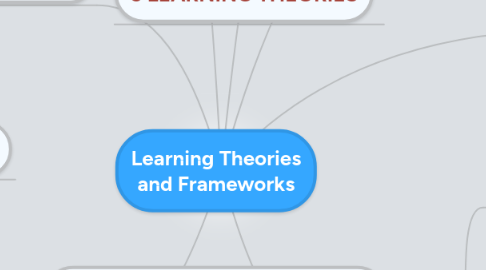
1. SCOT
1.1. Social Construction of Technology
1.2. Technologies are created based on human interest in the day of age. Humans affect technology
1.2.1. If technologies are unsuccessful in society, we will dispose of them and create new ones to satisfy
1.2.2. Question: How come certain technologies are more successful than others?
1.3. States that the use of technology fills gaps
1.3.1. The gaps of what humans want
1.3.2. Question: What are some implications of technology and these "gaps" that they are filling? Are humans unsatisfied with life?
1.3.3. Question: Is technology good for humanity?
2. Media Ecology
2.1. The study of media technology in environments
2.1.1. In classrooms, workplaces, public, private, People's lives
2.2. Looks at the way we communicate in the world today
2.3. Understanding technology and various types of media in the world
2.4. Questions how humans are affected by technology today
2.4.1. Question: How IS technology affecting humans today? Is it creating zombies? creating lazy unsophisticated individuals?
3. PEDAGOGY
3.1. If the teacher doesn't know how a student learns, they won't learn.
4. LEARNING
4.1. Learning can be messy, difficult and frustrating, but these are the aspects that help us learn.
5. Philosophy of Teachnology
5.1. Similar to the idea of pedagogy
5.2. A teacher's point of view and thoughts on how to incorporate technology into a lesson plan
5.3. My teachnology will change throughout my education career; as different technologies come into the world, so do new and improved teaching theories.
5.4. My PLN may help me gain more insight into my philosophy of teachnology
5.5. Personal beliefs and values should be considered when developing a philosophy
6. 5 LEARNING THEORIES
7. TWO LEARNING FRAMEWORKS
8. Connectivism
8.1. Emerged in 2006
8.2. Creating and developing connections and networks
8.3. Current knowledge is the key; know where and how to find information you need
8.4. Learning is active
9. Constructivism
9.1. Learning is active
9.1.1. Telling is not enough to make sense of something. Providing opportunities for students to participate in informal talks are essential.
9.2. Knowledge is created, not transferred
9.3. Teachers allow students to provide their own interpretation and their own knowledge to the subject
9.4. Learning is Recursive
9.4.1. Students are building on their past knowledge.
9.5. Learning is Continuous
9.5.1. No matter how long you study a particular subject, you will never master it in its entirety. Every time you revisit the topic, you are always going to learn something new.
10. Cognitivism
10.1. Also known as, Cognitive Load Theory
10.2. This was a response to the behaviourist's point of view. Therefore, some of their theories have been used or altered in some way.
10.3. Prior knowledge is essential; we build on what we already know.
10.4. Based on looking at Short Term (working memory) and Long Term memory
11. OUR "MEMORY PALACE"
11.1. Here is a great video I found regarding the Cognitive mind and the differences and similarities on how we use our mind now and in the past http://www.ted.com/talks/joshua_foer_feats_of_memory_anyone_can_do.html
12. TPACK
12.1. Technological, Pedagogical And Content Knowledge
12.2. 3 different types of knowledge that teachers need in education
12.2.1. Technology
12.2.2. Pedogogy
12.2.2.1. How teachers teach
12.2.3. Content
12.2.3.1. What teachers know about the subject
12.3. Difficult to complete effectively and efficiently, however, all three areas should be looked at and be aware of when creating a lesson plan
12.4. A framework in which a teacher should think about first before writing and completing a lesson plan
12.4.1. Ask yourself: Have I address this area or that area? How can I improve this to reach all students' needs, etc.
